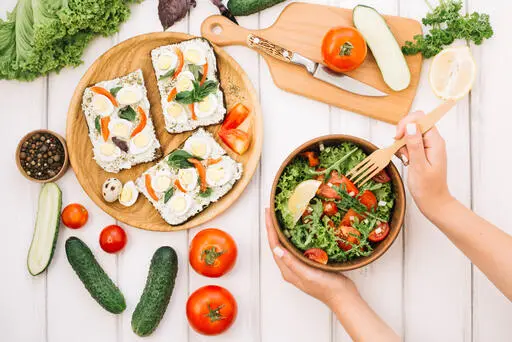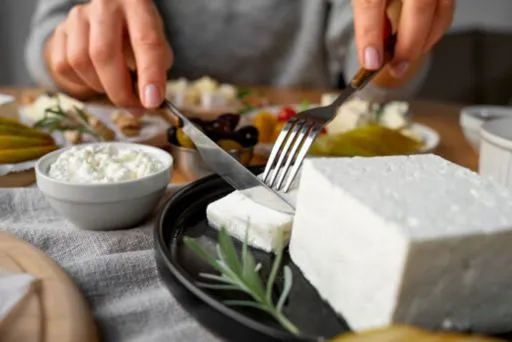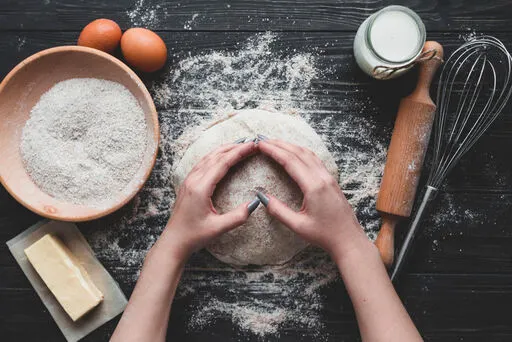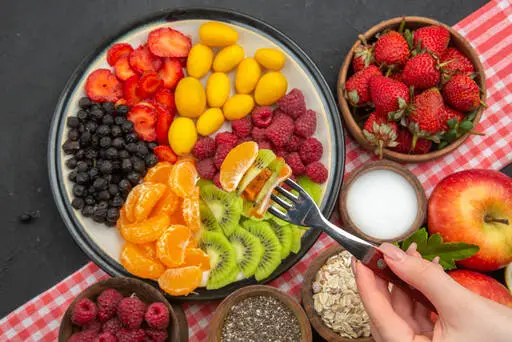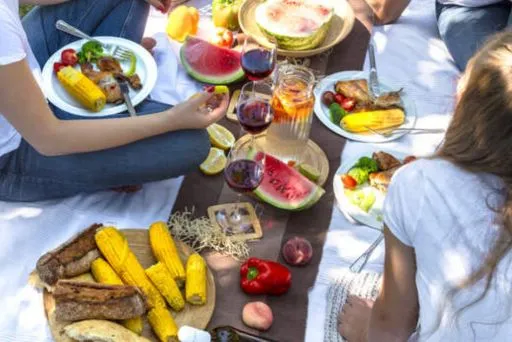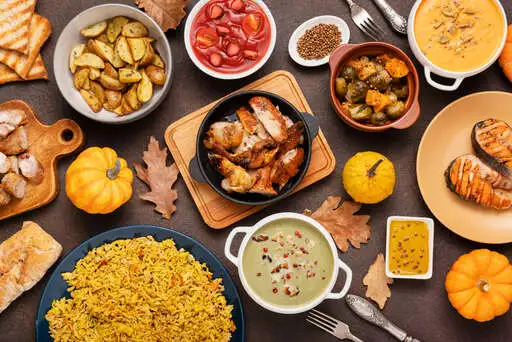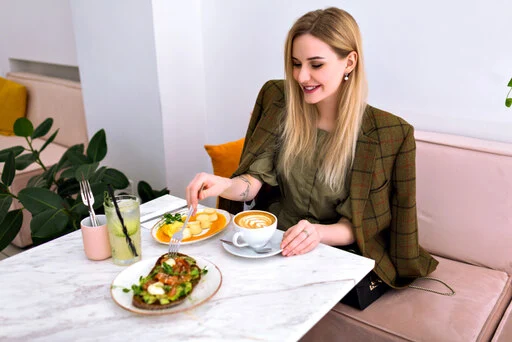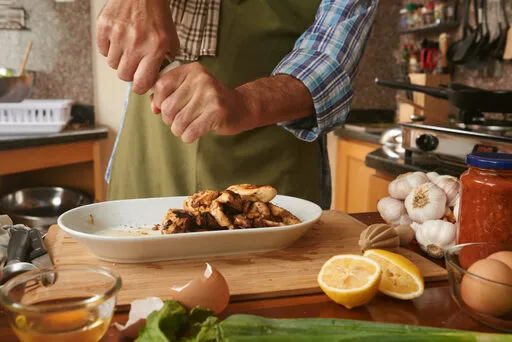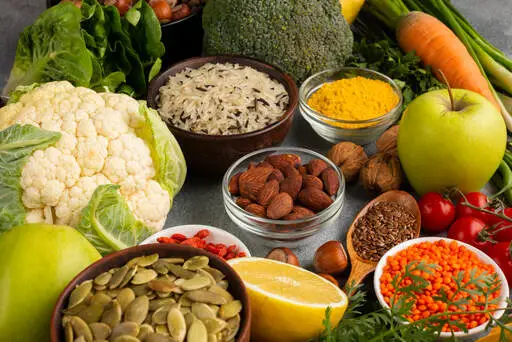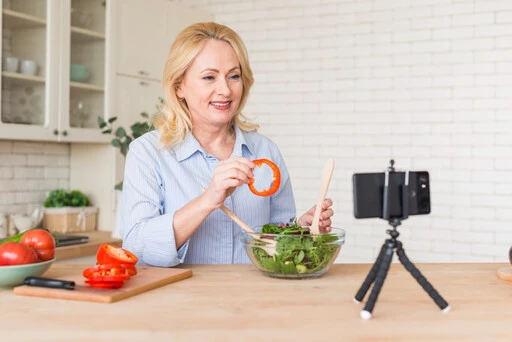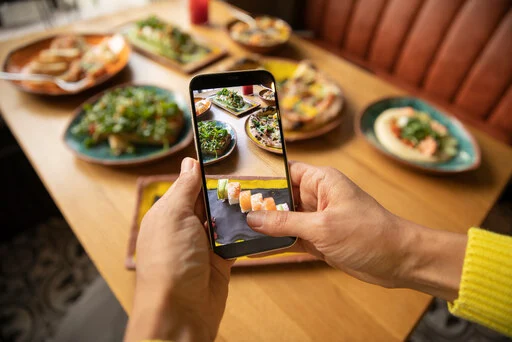Transform your kitchen into a hub of creativity with good to best! Discover the magic of Zero-Waste Food Cooking, where nothing goes to waste, and every meal becomes an opportunity to impress. Infused with Oriental flavors, this cooking approach not only reduces your footprint but also elevates your culinary skills. Join us as we show you how to make the most out of every ingredient, ensuring nothing but satisfaction on your plate.
Table of Contents
1. The Essence of Zero-Waste Food Cooking
Zero-Waste Food Cooking is a lifestyle choice that beautifully combines creativity and mindfulness in the kitchen. This approach encourages you to use every part of the ingredient, ensuring that nothing goes to waste. From turning vegetable peels into flavorful broths to using leftover rice for a satisfying stir-fry, Zero-Waste Food Cooking allows you to create delicious meals while reducing your environmental impact. Embracing this lifestyle not only benefits the planet but also deepens your connection to the food you prepare and consume.
At its core, Zero-Waste Food Cooking is about making the most of what you have. This lifestyle invites you to rethink the way you approach cooking, seeing potential in every scrap and leftover. With a touch of Oriental inspiration, such as using ginger skins for teas or crafting sauces from soy and miso, you can elevate your dishes while staying true to the principles of sustainability. This mindful cooking style turns everyday meals into a celebration of both flavor and resourcefulness.
- Understanding Zero-Waste: More Than Just a Trend
Zero-Waste is more than just a trend—it’s a lifestyle that prioritizes sustainability and mindfulness in every aspect of living, especially in the kitchen. By adopting Zero-Waste practices, you’re committing to reducing food waste, conserving resources, and living more intentionally. This lifestyle choice is about understanding the impact of our consumption and finding ways to minimize waste, making it a meaningful and lasting change rather than a fleeting fad.
For those who appreciate the richness of Oriental cuisine, incorporating Zero-Waste principles can add a new dimension to your culinary lifestyle. From using every part of a vegetable to repurposing leftovers into new dishes, Zero-Waste Cooking allows you to savor the full potential of your ingredients. It’s about respecting food as a precious resource, honoring the cultural heritage of Oriental cooking, and making choices that benefit both your health and the environment.
- The Benefits of a Zero-Waste Kitchen
A Zero-Waste kitchen is not only good for the planet, but it also enhances your lifestyle in numerous ways. By reducing food waste, you save money and make the most of every grocery purchase. This mindful approach to cooking can also inspire creativity, as you find innovative ways to use ingredients that might otherwise be discarded. The result is a more efficient kitchen where every item has value and purpose.
Moreover, adopting a Zero-Waste lifestyle in the kitchen fosters a deeper appreciation for food. When you embrace these principles, you begin to see the beauty in every ingredient, from the vibrant colors of vegetable skins to the rich flavors that can be coaxed from seemingly simple scraps. Infusing your cooking with Oriental techniques, like fermenting or pickling, adds an extra layer of depth to this lifestyle, allowing you to explore new flavors while staying true to the ethos of sustainability.
2. Incorporating Oriental Flavors into Zero-Waste Cooking
Incorporating Oriental flavors into Zero-Waste Cooking not only enhances the taste of your dishes but also adds a unique cultural richness to your culinary lifestyle. Oriental cuisine is known for its deep respect for ingredients, often using every part of the plant or animal to create complex and satisfying meals. By integrating these principles into a Zero-Waste approach, you can craft meals that are both flavorful and sustainable, making the most out of every ingredient while embracing a mindful, eco-friendly lifestyle.
The beauty of Oriental cuisine lies in its simplicity and depth, where even the most modest ingredients are transformed into culinary delights. For instance, in many Asian cultures, vegetable scraps like carrot tops or radish leaves are not discarded but used to create broths, stir-fries, or salads. This aligns perfectly with a Zero-Waste lifestyle, where the goal is to reduce waste and maximize the utility of all food items. By blending these two approaches, you not only reduce your environmental impact but also explore new and exciting flavors that enrich your daily meals.
- Maximizing Ingredients: From Root to Leaf
One of the key aspects of a Zero-Waste lifestyle is maximizing the use of every ingredient, from root to leaf. This approach aligns seamlessly with many Oriental cooking techniques that emphasize using the whole vegetable or grain. For example, in Chinese cuisine, every part of the bok choy is utilized, from the crunchy white stalks to the tender green leaves, each bringing a different texture and flavor to the dish. By adopting this mindset, you can turn what might be considered scraps into delicious, full-bodied meals, reducing waste while elevating your cooking.
Maximizing ingredients in your kitchen also encourages creativity and innovation, essential components of a Zero-Waste lifestyle. Oriental dishes often incorporate lesser-used parts of plants, like broccoli stems or cabbage cores, turning them into the stars of a dish rather than mere leftovers. This practice not only supports a more sustainable kitchen but also introduces you to a broader palette of flavors and textures, making your meals more diverse and interesting. By embracing the root-to-leaf approach, you can enjoy the full potential of your ingredients and contribute to a more sustainable food culture.
- Signature Oriental Ingredients: A Guide to Flavorful, Waste-Free Dishes
Oriental cuisine offers a treasure trove of signature ingredients that can be easily incorporated into a Zero-Waste lifestyle. Ingredients like ginger, soy sauce, and miso are not only staples in Oriental cooking but also versatile tools for reducing waste. For instance, ginger peels, often discarded, can be simmered to make a fragrant tea or added to stocks for an extra layer of flavor. Soy sauce and miso, with their deep umami profiles, can transform even the simplest leftovers into something rich and satisfying, ensuring that nothing goes to waste in your kitchen.
These ingredients are not only flavorful but also highly adaptable, making them perfect for a Zero-Waste lifestyle. Consider using dried shiitake mushrooms or kombu (kelp) to enhance soups and broths, both of which can be reused multiple times before composting. Oriental cuisine’s reliance on fermentation, like with kimchi or pickled vegetables, also provides an excellent way to preserve ingredients that might otherwise spoil, extending their shelf life and reducing food waste. By integrating these signature Oriental ingredients into your Zero-Waste cooking, you can create dishes that are both delicious and sustainable, showcasing the best of both worlds.
3. Creative Zero-Waste Recipes to Try
Zero-Waste cooking is all about turning potential food waste into something delicious and exciting. By focusing on creativity in the kitchen, you can make the most of every ingredient, ensuring that nothing goes to waste. Whether it’s crafting a hearty soup from vegetable scraps or transforming leftover rice into a vibrant stir-fry, there are countless ways to embrace a zero-waste approach to food. With a dash of Oriental inspiration, these recipes can introduce new flavors and textures to your meals, making them both sustainable and satisfying.
Incorporating Zero-Waste principles into your cooking routine not only helps reduce food waste but also brings an element of adventure to your culinary endeavors. Imagine using those odds and ends left in your fridge to create a delightful dish that bursts with flavor. By experimenting with ingredients that might typically be discarded, you can discover new favorites and elevate your food to the next level. These creative recipes are not just about saving the planet; they’re about making food that you and your family will genuinely enjoy.
- Reviving Leftovers: Oriental-Inspired Dishes with a Twist
Leftovers don’t have to be boring. In fact, they can be the starting point for some truly inspired dishes. Oriental cuisine offers a wealth of techniques and flavors that can breathe new life into yesterday’s food. For example, leftover rice can be transformed into a comforting bowl of fried rice, seasoned with soy sauce, garlic, and a touch of sesame oil. Add in some finely chopped vegetables, perhaps even a scrambled egg, and you’ve got a dish that feels fresh and exciting, rather than just reheated food.
Another great way to revive leftovers is by turning them into a hearty soup or stew. Oriental broths, rich in umami flavors, are perfect for this. Use leftover meats, vegetables, and even noodles to create a dish that’s not only waste-free but also bursting with flavor. By adding a splash of soy sauce, a sprinkle of green onions, and perhaps a dash of chili oil, you can turn last night’s dinner into a warming, satisfying meal. These Oriental-inspired recipes not only prevent food waste but also offer a delicious way to enjoy food that might otherwise be overlooked.
- Transforming Scraps into Culinary Delights
In a Zero-Waste kitchen, even the scraps can be stars. Oriental cuisine, with its emphasis on using every part of an ingredient, provides a perfect template for turning what might otherwise be discarded into culinary delights. For instance, vegetable peels and stems can be turned into a flavorful stock that serves as the base for soups, stews, or sauces. This approach not only maximizes the use of food but also infuses your dishes with deeper, more complex flavors.
Another way to transform scraps into something special is by making pickles. The art of pickling is a cornerstone of many Oriental cuisines, and it’s a fantastic method for preserving and enhancing the flavor of vegetable scraps. Carrot tops, cucumber ends, or radish leaves can be pickled with a simple mixture of vinegar, sugar, and spices, creating a tangy, crunchy addition to any meal. By incorporating these Zero-Waste practices into your cooking, you not only reduce food waste but also expand your culinary repertoire with exciting, flavorful additions to your food.
4. Tips for a Sustainable and Flavorful Kitchen
Creating a sustainable and flavorful kitchen is all about making thoughtful choices that reduce waste while enhancing the quality of your food. By adopting a few key practices, you can make your cooking not only more eco-friendly but also more delicious. This involves everything from selecting the right ingredients to ensuring that nothing goes to waste. With an emphasis on fresh, vibrant flavors, particularly those inspired by Oriental cuisine, you can maintain a kitchen that’s both sustainable and satisfying.
A sustainable kitchen starts with mindful shopping and cooking habits. Choosing seasonal, locally sourced food is a great way to reduce your carbon footprint and support local farmers. In Oriental cuisine, freshness is key, and using ingredients at their peak ensures that your dishes are as flavorful as possible. Additionally, practicing portion control and finding creative uses for leftovers are essential strategies for minimizing waste and making the most out of every meal. By integrating these tips into your daily routine, you can enjoy a kitchen that’s both environmentally responsible and rich in flavor.
- Planning and Prepping for Zero Waste Success
Effective planning and prepping are the cornerstones of a Zero-Waste food lifestyle. By taking the time to plan your meals and grocery lists carefully, you can reduce the likelihood of overbuying and ensure that every ingredient you purchase is used to its fullest potential. For instance, Oriental meal planning often involves using a base ingredient like rice or noodles, which can be prepared in bulk and repurposed throughout the week in various dishes. This not only saves time but also ensures that no food goes to waste.
Prepping ingredients in advance also plays a crucial role in reducing food waste. Washing, chopping, and storing vegetables as soon as you bring them home helps maintain their freshness and makes it easier to incorporate them into your meals. In Oriental cuisine, where quick stir-fries and soups are common, having prepped vegetables and proteins on hand means you can whip up a delicious, waste-free meal in no time. By planning and prepping with Zero-Waste in mind, you set yourself up for success in maintaining a sustainable and efficient kitchen.
- Storing and Preserving: Keeping Ingredients Fresh and Flavorful
Proper storage and preservation techniques are essential for keeping your food fresh and reducing waste in the kitchen. A Zero-Waste approach to food often involves understanding how to store ingredients so that they last longer and retain their flavor. For example, many Oriental foods, such as tofu or fresh herbs, can be kept fresh longer by storing them in water and changing it regularly. This simple technique ensures that your ingredients stay vibrant and ready to use, minimizing spoilage.
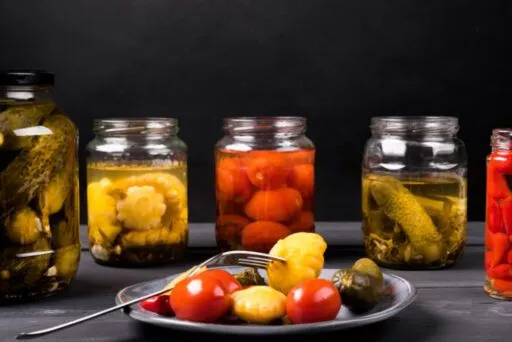
Preserving food is another key strategy in a Zero-Waste kitchen. Techniques like pickling, fermenting, and drying, common in Oriental cuisine, are excellent ways to extend the life of your ingredients. Pickled vegetables add a tangy, crunchy element to meals and can be made from almost any leftover produce. Fermented foods like kimchi not only preserve vegetables but also enhance their nutritional value and flavor. By mastering these storage and preservation methods, you can keep your kitchen stocked with fresh, flavorful food while significantly reducing waste.
5. Conclusion
Embracing a Zero-Waste approach to food is not just a trend but a meaningful lifestyle choice that benefits both you and the environment. By incorporating sustainable practices into your kitchen, you not only reduce food waste but also enhance the quality and flavor of your meals. Oriental cuisine, with its emphasis on using every part of an ingredient, offers a rich source of inspiration for those looking to make their cooking more eco-friendly. By adopting these principles, you can enjoy a kitchen that’s as kind to the planet as it is to your taste buds.
The journey towards a Zero-Waste food lifestyle is one of creativity and mindfulness. From planning and prepping meals to storing and preserving ingredients, each step you take brings you closer to a more sustainable and flavorful way of cooking. By reimagining leftovers and turning scraps into culinary delights, you can reduce waste while enjoying a diverse range of dishes inspired by Oriental flavors. This approach not only minimizes your environmental footprint but also adds excitement and variety to your daily meals.
Ultimately, a Zero-Waste approach to food is about making the most of what you have while discovering new and delicious ways to cook. Whether you’re reviving leftovers, experimenting with new recipes, or simply being more mindful of how you use your ingredients, the benefits of this lifestyle extend far beyond the kitchen. It’s a commitment to sustainability, a celebration of flavor, and a step towards a more conscious way of living.
6. Call To Action
We’d love to hear your thoughts—please share your feedback on how these Zero-Waste cooking tips have inspired your food journey!

